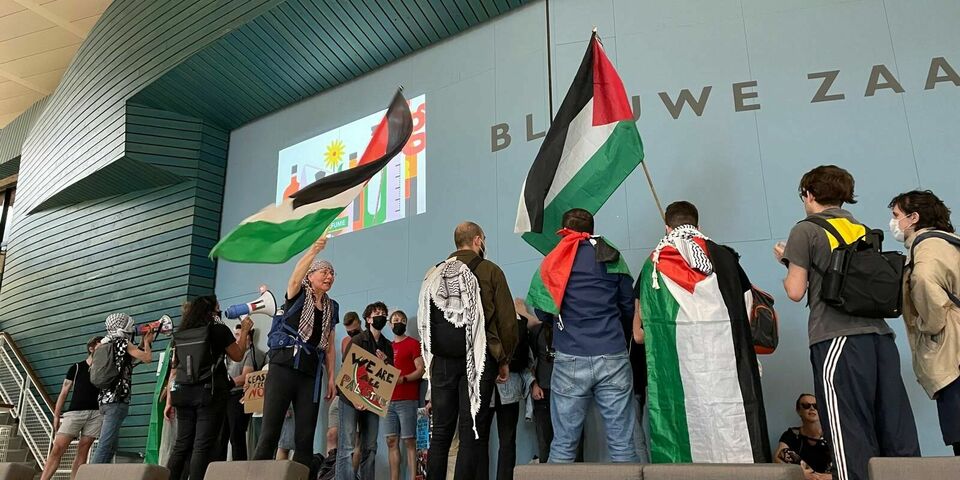“For too long, the activist woke culture dominated the lecture halls and education institutions”, said member of the House of Representatives Reinder Blaauw (PVV). “And all too often, political activism was put above scientific integrity. I’m happy to say this situation has now come to an end.”
In the debate, he criticised diversity officers, as they don’t help students develop proper reading skills. “And how do curricula on critical race theories, decolonisation, feminism and global justice make our students better analytical thinkers?”
He also said that the ‘woke philosophy’, which according to him seduced a shockingly large number of students and teachers, led to “Israeli students being attacked and threatened”.
His solution: “Actual cutbacks will have to be made, mainly in higher education. These will amount to around 970 million euros.”
The cutbacks aren’t intended to pick on or punish students, he added. “This is the only way of giving the education institutions the opportunity to reconsider their priorities. Do our education institutions want to offer political activism or proper education and proper research?”
Double standard
Claire Martens-America (VVD) didn’t argue against this. She criticised the “double standard” in higher education. “Because there are Jewish or Israeli students who don’t dare to go to school, who have to walk through throngs of protesters screaming that there’s no place for them at university. And this happens, mind you, at institutions that talk about social safety all the time.”
Doğukan Ergin (Denk) was more understanding of the protesting students, given the devastations in Gaza. The universities have been wiped off the map there and thousands of students have perished, he stated. As far as he’s concerned, the universities should therefore cut ties with Israeli institutions.
Slow-progress penalty
And the cutbacks? The opposition railed against them. The slow-progress penalty, for instance, is a terrible idea, says a motion by D66, Partij voor de Dieren, SP, GroenLinks-PvdA and Volt. In practice, it’s a penalty for students providing informal care or doing voluntary or administrative work, they argue.
The new coalition wasn’t bothered. As mentioned, PVV was downright happy with the cutbacks. NSC called some cuts “painful” and BBB also talked about “choices that really hurt”. But they did defend them.
“The slow-progress penalty is obviously also a way of encouraging children to complete their studies a bit faster”, said Claudia van Zanten (BBB). Or of sticking with a programme instead of repeatedly starting a new one.
Checking
VVD took a more offensive stance: for millions of euros of education expenditures it’s entirely unclear whether they’ve had any effect, MP Claire Martens-America argued. What are the concrete criteria for measuring equal opportunity? “I predict that in the years ahead, a number of colleagues will keep harping on about possible intended cutbacks, whereas we are currently checking amounts without knowing exactly what we’re checking them for.”
But what about the termination of the sector plans, in which the universities collaborate on a national level and which yield 1200 permanent jobs? Is it even possible to reverse those cutbacks, Ilana Rooderkerk (D66) asked her fellow party member, outgoing Minister Robbert Dijkgraaf.
Calmness and space
Dijkgraaf couldn’t say much on the subject, except for confirming that agreements have been made that were to ensure ‘calmness and space’. “So yes, it’s up to my successor to discuss with the university how this cutback can ultimately be implemented.”
The same applies to the slow-progress penalty. This requires for the law to be changed. This typically takes two years and after that, the Education Executive Agency (DUO) needs to modify its systems. So it’s very much the question whether things will move as fast as the new coalition hopes.
Dijkgraaf: “On a personal note, I would like to add that I attach great value to accessible education for every student and I hope, therefore, that a subsequent cabinet will keep in mind that there are ambitious students who like to develop themselves alongside their studies by, for example, doing administrative work. And there are also students who unfortunately fall ill during their studies or who have a disability.” Indeed, NSC leader Pieter Omtzigt has said exceptions will possibly be made.


Discussion